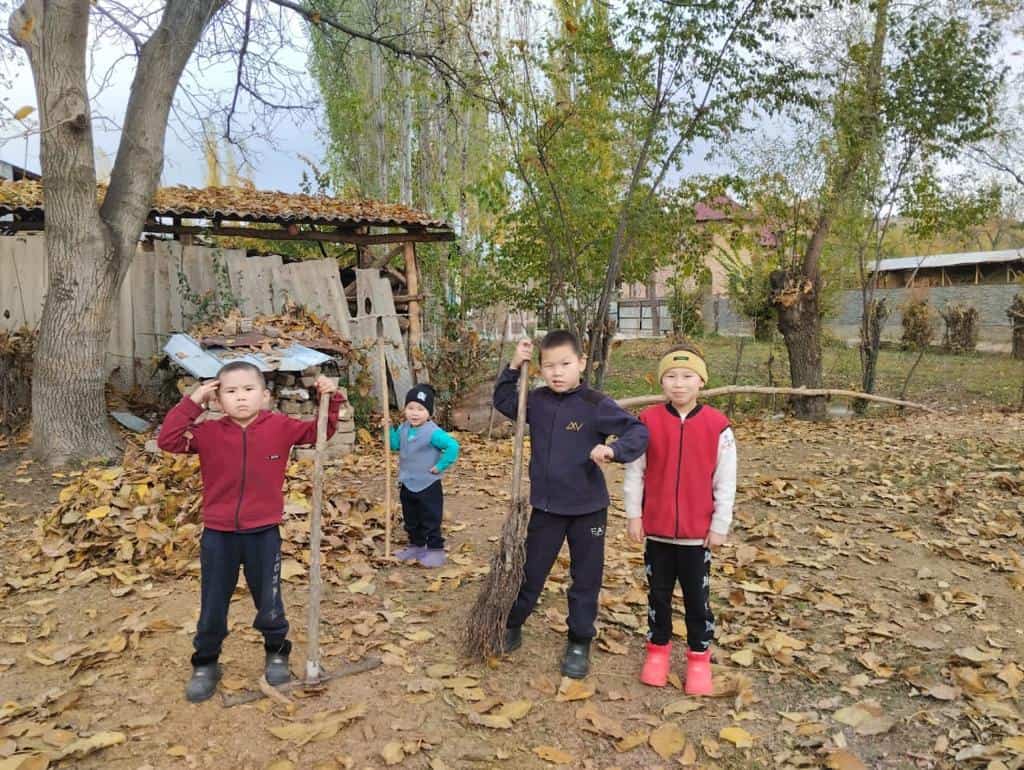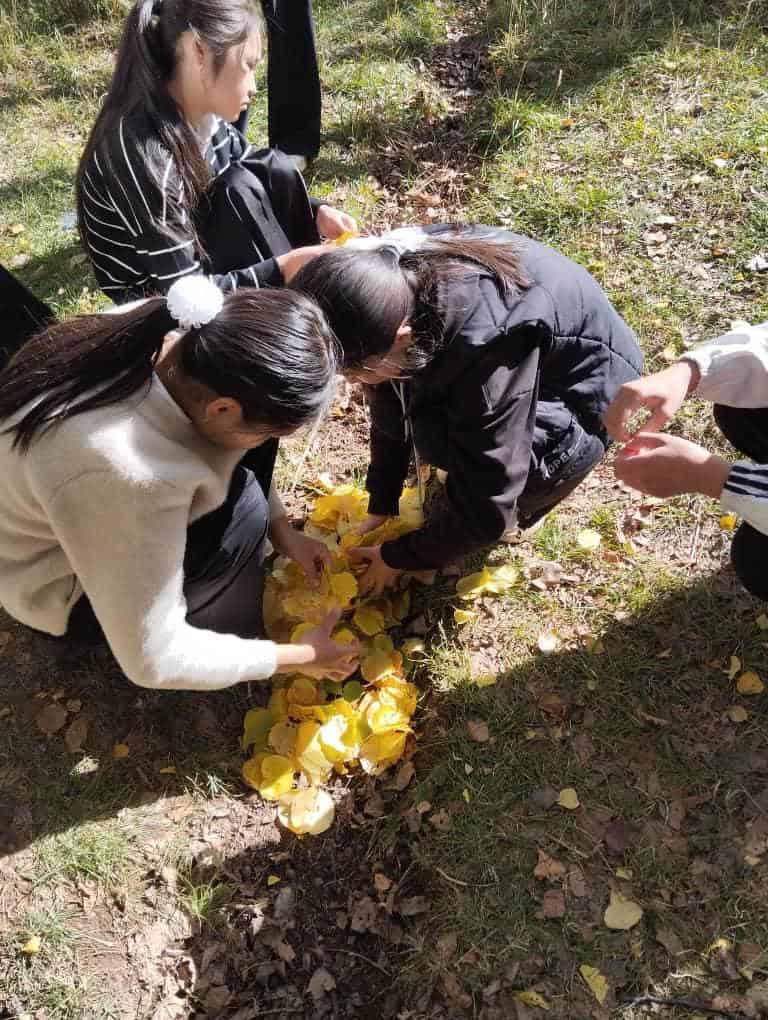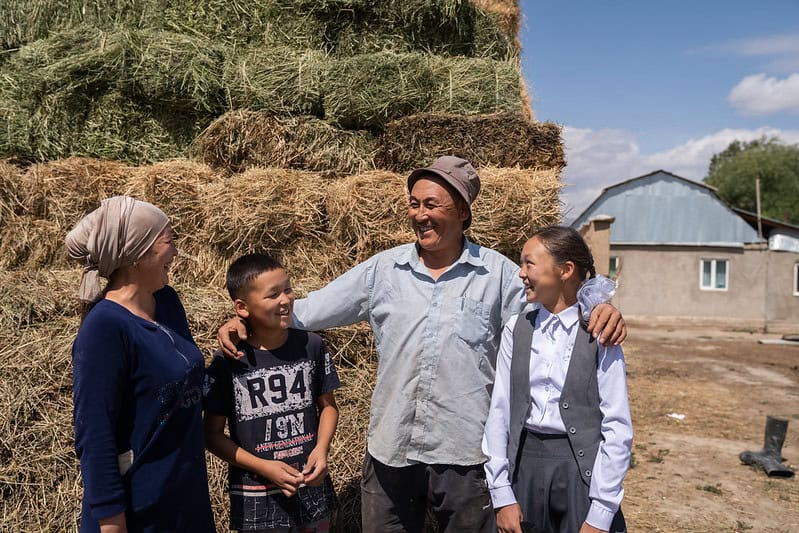In the heart of the Kara-Kulzha district, in the Osh Province of the Kyrgyz Republic, lies A. Osmonov School. Here, amidst the mountainous landscape, a transformative project is underway, blending foundational numeracy with sustainable practices to address pressing challenges facing both the community and the planet.
Understanding Local Needs
The Climate- Resilient Eco-Firewood Project was launched to meet local heating needs but in a sustainable way that accounts for global climate concerns. Using Schools2030’s Human-Centred Design methodology, the design team at Osmonov School conducted surveys and interviews with over 80 people, including students, parents, teachers and community members. The research identified two critical issues: the need for the practical application of mathematical principles to improve student numeracy and science outcomes and the growing environmental impact of traditional heating methods, particularly during the winter months.
Practical Skills: From Waste Reduction to Community Engagement
In response to these challenges, students in grades 4-9 have begun to produce eco-friendly firewood to sell to the local community. At the core of this initiative lies a commitment to equipping students with practical maths skills at the same time as enabling them to make positive change in their community through increased environmental awareness.
Eco-friendly firewood is crafted from sustainable sources such as fallen leaves, sawdust, and paper. Thus, its production serves a dual purpose: firstly, it addresses the challenge of paper waste recycling, thereby reducing the volume of waste generated from discarded paper materials. Secondly, it tackles the issue of waste generated from fallen leaves. This contributes positively to waste reduction by eliminating the need for leaf collection and burning, while offering a sustainable solution for recycling sawdust.

“I would be very proud if we could help our village, even if we are making small steps through our ecological initiative. I believe that not only global leaders should pay attention to this challenge, but everybody should take responsibility at their own levels.”
Kenje Rayimbekova, 9th grade student of A. Osmonov School
Project Phases: From Collection to Community Outreach
Students in grades 4-9 have been actively involved from the very inception of the process, starting with the collection of raw materials, engaging in calculations, and overseeing various aspects of production:
- Collection of raw materials: Students gather leaves from various locations and use designated paper bins placed in school, public areas, and the village for collection.
- Production: Students participate in a mini-production workshop equipped with special containers to create the solution, as well as for storage, drying, and safekeeping of raw materials. This ensures full compliance with all sanitary and technical standards.
- Educational Engagement: Teachers conduct extracurricular activities and practical sessions, emphasising the application of theoretical mathematics for hands-on learning.
- Awareness Campaigns: Students lead educational initiatives within the school and village, promoting climate change awareness and eco-friendly practices like waste segregation, home insulation, and energy-efficient lighting.
- Sale of firewood: The finished products are made available for residents of the village to purchase.


Through active participation in every stage, from material collection to production and outreach, students gain invaluable practical experience that supports their understanding of environmental issues, as well as traditional subject matter. Those involved also hope that this project will inspire others to create similar initiatives, as well as increase awareness of climate challenges and the importance of sustainable living practices. 9th grade student and active participant of the project, Kenje Rayimbekova, told us:
“Today’s problem is that the environment is being damaged, and it’s not just in our village—it’s a global issue. For our Eco-Firewood project, we started collecting waste from various places: in stores, at home; this innovation also helped me understand mathematics better. Therefore, I would be very proud if we could help our village, even if we are making small steps through our ecological initiative. I believe that not only global leaders should pay attention to this challenge, but everybody should take responsibility at their own levels.”
By making eco-friendly firewood available for purchase, the project not only provides a tangible solution to heating needs but also fosters a sense of community ownership and responsibility for protecting the planet.
The Schools2030 Global Forum takes place in Bishkek, Kyrgyz Republic from 11-13th June. To watch the live-streamed events and engage in critical dialogue about how teachers can support a green future, click here.
